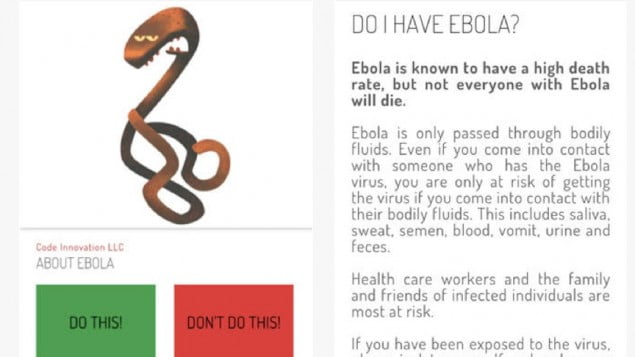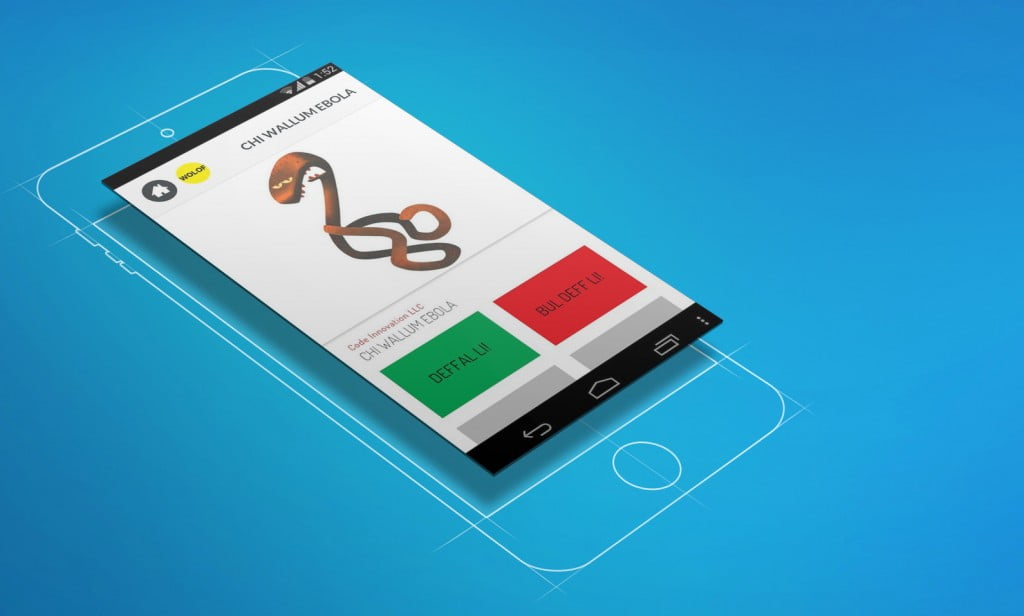This article was first published on The Times of Israel and was re-posted with permission.
About Ebola, an app built using a programming platform developed in Israel and abroad, is providing medical workers in the field with what is turning out to be one of their most effective tools available for preventing the alarming spread of Ebola in the villages of in West Africa. Using the Snapp platform, it took volunteers only about three days to build a mobile app that provides information on what Ebola is, what to do if symptoms associated with Ebola appear, and how to avoid catching it in the first place.
Most important, said Asaf Kindler of Snapp — the platform is so easy to use that it was a simple matter for volunteers to reprogram for the languages used by villagers in the back-country villages of Liberia, Sierra Leone, and other affected countries – languages like Jola, Krio, Liberian English, and Wolof. “It’s essential that people understand exactly what is going on, and to do that you have to communicate with them in their own language,” said Kindler. “Using Snapp, anyone can build an app by clicking on a few buttons on their mobile device, so it was easy for the volunteers to install the languages into their app.”

About Ebola App. Courtesy
Conservative estimates say about 6,000 people have been infected with the virulent disease, and predictions of its spread quote numbers of 1.4 million and more. The death rate is at least 50 percent. Basic knowledge and practice of hygiene can stop its spread, experts say.
The new app can help with that. So far, About Ebola (available for iOS and Android) has been downloaded about 5,000 times by residents of affected areas – meaning that word is filtering down to the villages about how to prevent the spread of Ebola. In fact, said Kindler, About Ebola is the first Android app in the Jola (also known as Diola) language, which is spoken by at least a half million people. “Because of us, Google is now in the process of recognizing Jola as an official language and is opening up its Android app store to include apps using Jola,” he noted.
Communicating with villagers in their own language and getting the message out is half the battle, said Kindler. “In almost all these villages there are at least one or two people with smartphones, and they are very highly regarded, both for their ability to access information from the outside world, and for their acumen in acquiring a device in the first place. So when they tell villagers that they should be doing a lot of washing with soap and water – one of the methods the app lists as a way to prevent Ebola – the villagers are likely to listen.”
To continue reading this article on the TOI site, click here.
Photo credit: Courtesy
Related posts

Israeli Medical Technologies That Could Change The World

Harnessing Our Own Bodies For Side Effect-Free Weight Loss

Missing Protein Could Unlock Treatment For Aggressive Lung Cancer




Facebook comments